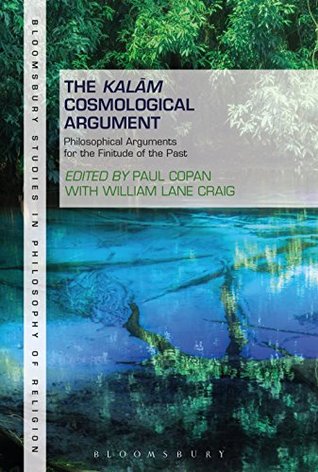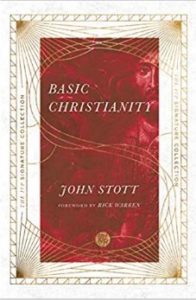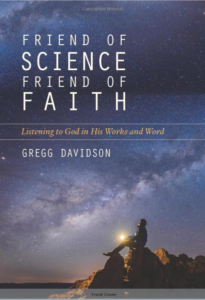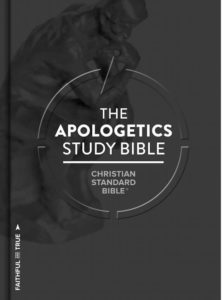“The Kalam Cosmological Argument, Volume 1: Philosophical Arguments for the Finitude of the Past.” by Paul Copan (Editor), and William Lane Craig (Editor) is the first of a two part work defending the second premise of The Kalam Cosmological Argument. The first volume deals with philosophical arguments regarding the nature of infinity. The second volumes involves the scientific evidence (i.e Big Bang cosmology, the second law of thermodynamics, the Borde-Guth-Velinken Theorem, etc.).
This is a really heady book. It’s full of what I’d call “Scholar Babble”. That isn’t to say I couldn’t understand what I’m read, but it does mean I need to hyper focus on what’s being said and go slowly. My brain is like a computer with a certain amount of RAM. I may have enough RAM to run a certain program, but depending on how big or complicated it is, it’ll use up a lot of ram. I’ll overheat, and so you can only use the program for small amounts of time. So, with my cognitive processes functioning at 100%, I can understand what I’m reading, but I also get mentally tired after one or two essays. I suppose another analogy would be a man who’s strong enough to lift a boulder, but he can only walk 10 feet a time. Whereas he can carry a small rock for a mile.
Besides, I actually wanted to reflect on what I was learning. I wasn’t doing a GoodReads challenge or anything like that, so there was no rush to get done.
I LOVE this book. It’s got scholarly essays written by both Christian and atheist philosophers, both proponents and opponent’s of the Kalam. Opponents include names such as William Lane Craig, Davis S Oderberg, Andrew Loke. Opponents include people like Wes Morriston, Landon Hedrick, and Grraham Oppey. Moreover, the essay writers are interacting with each other’s essays so that it sort of reads like a debate book. I’m not sure where all of them came from. Some of them were taken from pre-existing literary works. Others seem to have been written specifically for this “Kalam Anthology” as Paul Copan called it in the foreward. Or maybe they’re all just collected from various sources. In any case, it’s a blast to read an argument trying to take down the justification for premise 2 by Wes Morriston for example over two essays, and then read two essays by Andrew Loke and David Oderberg responding to Morriston.
Although this tit for tat exchange really only obtained for most of the book. I was disappointed when Stephen Puryear made an argument against the Argument From Successive Addition and there was no follow up essay dealing with his arguments. I found Puryear’s objections to be formidable and I was interested to see how one of the Christian contributors would deal with it. Alas, while there was a response to Puryear, it’s in a paper written by Andrew Loke that you can only get from academic websites behind a paywall. The paper is only 7 pages long, and I don’t see why it would have been much trouble to include Loke’s response to Peryear in this book. Instead, what I got immediately after that was an essay by Davis S Oderberg about “The Trishtam Shandy Paradox” and Big Bang cosmology.
And as I point out in another article on this website, Landon Hedrick’s essay has convinced me that William Lane Craig’s argument from absurdities of actual infinites (illustrated by Hilbert’s Hotel) are invalid as given in their original forms. Andrew Loke has, however, provided a modified version of the argument that I think is better and doesn’t involve the problems Hedrick exposes with the original.
This is a very stimulating book and it’s quite challenging in more ways than one. It further confirms what I said about popular apologetics books being a bore to me now but scholarly books being exciting to read. This book is stimulating, and I’m reading high level argumentation both for and against the justification of the premises.
I would recommend this book only to seasoned apologists and philosophers who are already well acquainted with this debate and want to go further in their studies on the topic. If you’re new to philosophy of religion, the Kalam, or even just Christian Apologetics in general, this book is NOT for you. You’ll put the down the book and, like Penny from The Big Bang Theory sitcom, start crying because you can’t understand a single thing that’s being said. This is an advanced scholarly level work. If, however, like myself, you’ve been studying the Kalam and defending it (or opposing it if you’re on the other side) for years, then while it still won’t be bedtime reading, you’ll benefit from the book.
At the end of the day, I am even more convinced that the Kalam Cosmological Argument is a sound argument. While a couple of atheist writers raised some powerful objections to the arguments for the premise that the universe began to exist, ultimately they proved futile. Only a couple of them really bothered me, but I don’t find them to be insermountable. Hedrick showed at worst that we simply need to give a different formulation of the actual-infinites-entail-absurdities argument, and interestingly enough, the same Loke provided a satisfying response to Stephen Peryear’s argument regarding the conceptual divisibility of time increments.
I have to say though; it bothers me that atheist Redditers, YouTubers, and bloggers don’t follow these atheist philosophers and learn what they have to say and instead choose to listen to men like Richard Dawkins, Richard Carrier, and Sam Harris. I found even the worst objections in this volume to the Kalam were better objections than the stinkers these men have lodged (sometimes being as juvenile as “If God created the universe, who created God?”). Although as someone who has to respond to these guys regularly, I’m not complaining that they stick to the bad objections! But they might serve their cause better if they put down The God Delusion and pick up Arguing About Gods. If I were in their shoes, I’d want to read the best defenders of my worldview and not jokers like Dawkins. I certainly wouldn’t want to encounter someone like Oppey in the comment thread of my channel! Okay, rant/rabbit trail over.
Anyway, this is just an awesome book. I recommend you read it provided you have enough background on this subject to follow along.
My Rating Of This Book
5/5





